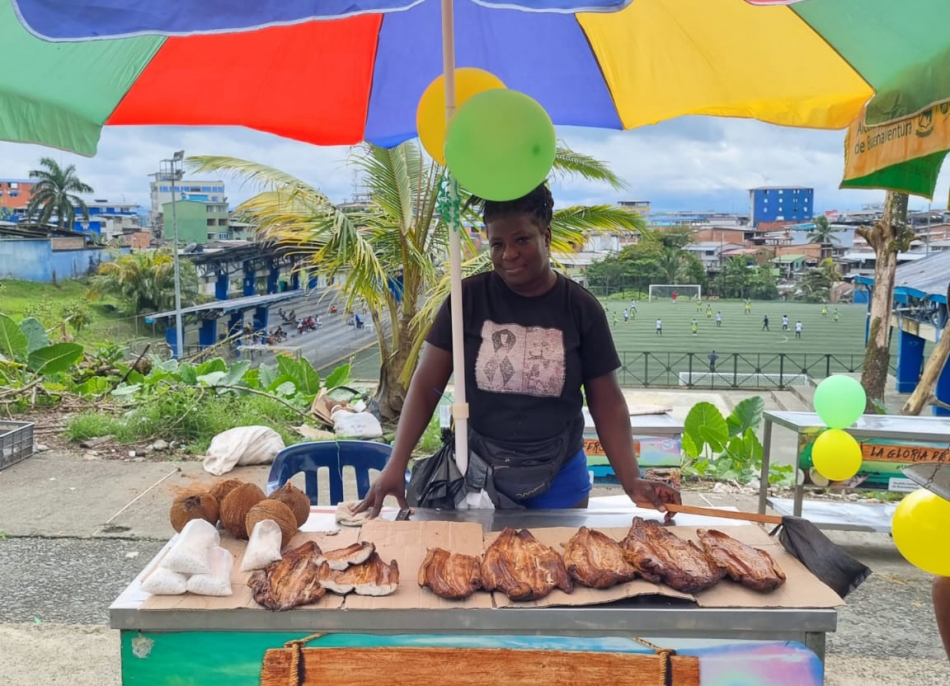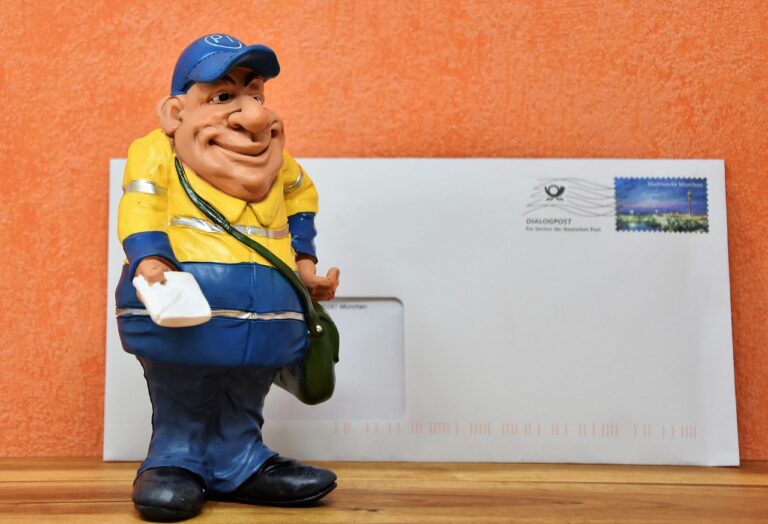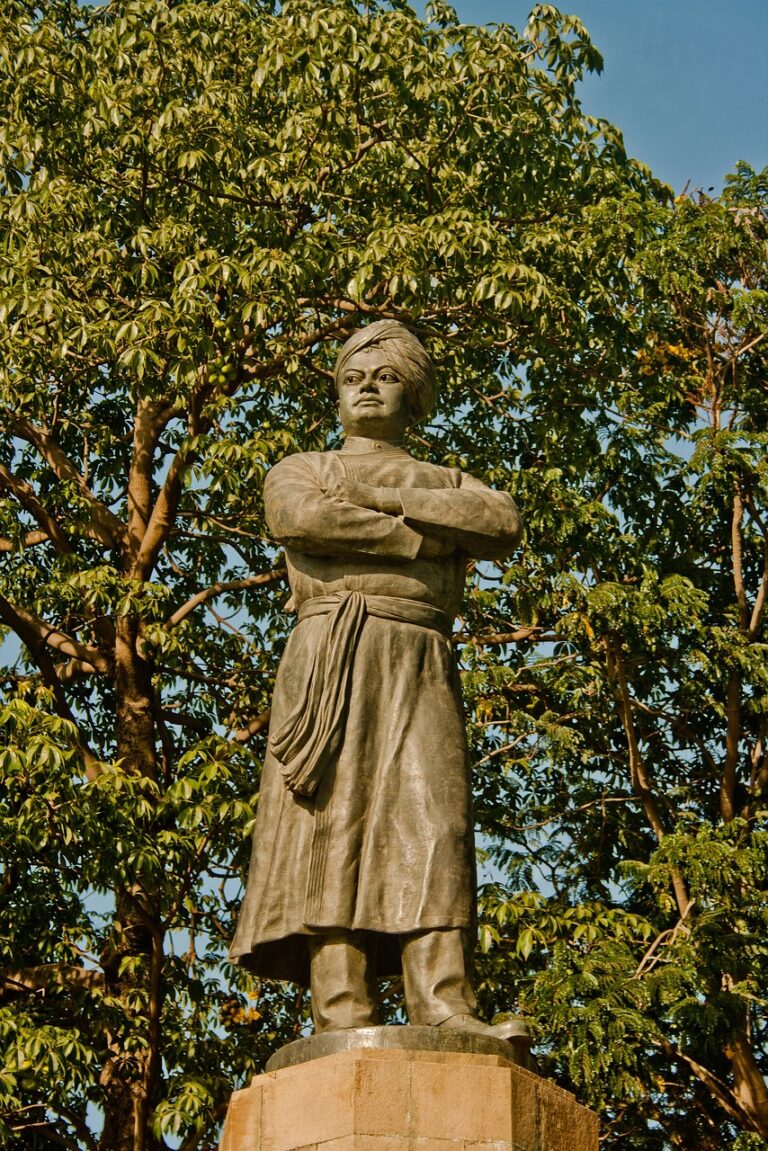
©FAO
Social protection gives Colombian women fish workers more economic independence and security
As the sun rises over one of Colombia’s busiest ports, the rhythmic sound of Chonta Marimba music is heard on the streets as fishers and fish workers make their way to work.
It’s early morning in the coastal town of Buenaventura. Sandra Gómez Montaño, a 55-year-old fish processor, is one of the town’s 400 000 inhabitants, and like the majority of the population, she depends on fisheries for her livelihood. Every day, she buys freshly caught fish from women known as the Platoneras because they traditionally carried large plates, or Platones, on their heads. This Afro-Colombian tradition is passed down from generation to generation, and these women fish vendors are proud of their heritage and role in society.
“The Platoneras play a very important role,” says Sandra, who works closely with the women fish vendors and turns this fresh catch into nutritious products for the community. Both the Platoneras and women fish processors are a crucial link between locally produced seafood and communities, providing essential nutrition for local families.
Working in the fish sector is embedded in Sandra’s heritage since her mother was a Platonera. However, she recognises that there are significant challenges in this field: incomes for women fish workers are typically very low and can vary greatly from month to month.

And while the women fish workers have access to public health care, they are among an estimated 70 per cent of Colombia’s workers excluded from social protection programmes. Too often they miss out on retirement pensions and unemployment benefits, leaving them more vulnerable to livelihood and food insecurity.
Now through its SOCPRO4FISH project, the Food and Agriculture Organization of the United Nations (FAO) and the Colombian Marine and Coastal Research Institute (INVEMAR), with funding from the Norwegian Agency for Development Cooperation (NORAD), are working to improve the Platoneras’ business skills and raise their incomes, as well as enhance their access to social protection schemes.
“SOCPRO4FISH aims to promote economic inclusion and strengthen the resilience and livelihood security of fishers and fish workers to shocks and impacts,” says Heysel Calderón, FAO’s National Coordinator for SOCPRO4FISH. “It is very important to understand that social protection is an effective measure for reducing poverty and food insecurity, as well as a mechanism for promoting rural development and sustainable fisheries management.”
Around 100 Platoneras and women fish workers have so far taken part in the training, which has also raised awareness about the public pension schemes and helped workers get in touch with officials to access social programmes offered by the Government of Colombia.
Social protection is essential for inclusive, sustainable growth and eliminating poverty. Yet, more than half of the world’s population, and particularly women, are excluded from social protection, according to the International Labour Organization. On average, women have social protection coverage which is eight per cent lower than men. In Colombia, the government has attempted to fill the gap with non-contributory benefits, but the coverage and benefit levels remain low.
The situation is even worse in the fisheries sector, as most programmes do not recognize the realities on the ground and, in many circumstances, are not flexible enough to meet the sector’s needs. Small-scale fishing activities often involve high levels of informality, irregularity and seasonality, which can result in the exclusion of small-scale fishers from laws governing formal employment, therefore hindering their participation in national social protection systems.
“In order to change this scenario, more projects need to focus on the expansion of social protection programmes, including shock-responsive and gender-sensitive social protection for fishers and fish workers,” says Daniela Kalikoski, FAO’s Lead Technical Officer for the SOCPRO4FISH initiative.
In Colombia, FAO and its partners have created an Inter-institutional Group on Social Protection for the Fisheries and Aquaculture Sector, called GIPRO. The group brings together government representatives, the private and public sectors, fishers and fish workers to promote dialogue and concrete action to improve access to social protection programmes.
If women fish workers gain more income security and greater access to public health care, they can advance their businesses and plan for their future.
“Now we feel supported, we have this social safety net that opens many opportunities,” Sandra says. “We can talk of our work with dignity. So, I say that now I can do many things.”
Source: the FAO News and Media office, Rome
– global bihari bureau




